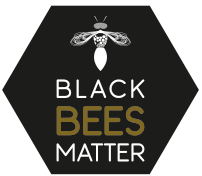Extinction

THE RISK OF EXTINCTION
Since the late 1990s, many beekeepers (especially in Europe and North America) have observed a sudden decrease in bee colonies. In Europe, a study reported that annual European bee deaths reached 30-35% and the number of bee colony numbers per hectare decreased by 25%.
This decline in bee colonies is the consequence of multiple factors, which act individually or in combination with one another: loss of biodiversity and natural habitats, pollinators in decline, monocultures, genetically modified organisms, use of pesticides and chemical fertilizers, destructive agricultural practices, pollution caused by waste, diseases, parasites and changes in climate patterns, which modify the natural cycle of ecosystems, making bees more vulnerable and less productive. Industrial agriculture increasingly threatens our Planet and some pesticides, in particular, pose direct risk to pollinators.
By restoring healthier bee populations, ecological agriculture improves pollination, which in turn improves crop yields, takes advantage of the natural ecosystem services, water filtration, oxygen production, disease and pest control. The farmers themselves have advocated research and funding by industry and government, in order to develop organic farming techniques, improve food production and maintain ecological health.
Extinction
Tutti i diritti sono riservati |
Per info rivolgersi a segreteria.direzione@cclab.it |
segreteria.direzione@cclab.it |
P.IVA 15098701004 |
Cookies & Privacy Policy |
Designed by CC LAB Consultant Ltd




